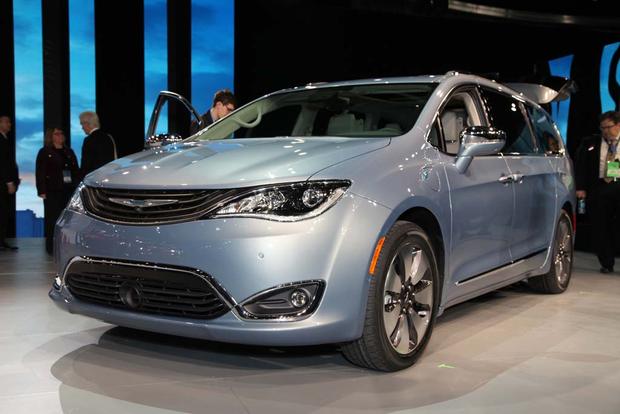-
2018 Buick Enclave “Avenir” will have ionic air purifier - April 12, 2017
-
Lease a Luxury Car for Less Than You Think - April 5, 2017
-
Shopping for a Car When Your Credit is Low - March 31, 2017
-
Aston Martin Closer to Unveiling Second-Generation Vantage - March 21, 2017
-
2017 Bentley Bentayga SUV: Offroad for $238,000 and Up - March 14, 2017
-
Pagani Huayra is Finally Here, Only $2.4M - March 9, 2017
-
Mercedes AMG E63 – For When Your Wagon Needs Drift - February 6, 2017
-
2018 Audi Q5 SUV: Enhanced Performance - January 30, 2017
-
2018 Toyota Camry Due in Late Summer - January 27, 2017
-
2018 Dodge Challenger SRT Demon Will Outstrip Hellcat - January 23, 2017
Auto Loan Defaults Decline
The number of consumer auto loans that defaulted dropped in April, according to Standard & Poor’s and Experian for the S&P/Experian Consumer Credit Default Indices.
Auto loan defaults were 1.9 percent in April, down from 2.4 percent in March. The data is a comprehensive measure of changes in consumer credit defaults, according to S&P/Experian.
When looking at mortgages and bank cards, the defaults are higher. Defaulting balances of bank card loans were 9.1 percent in April, up from 8.9 percent in March and 7.7 percent from a year ago. First and second mortgage default rates were 3.7 percent and 2.5 percent in April, both down from March.
"Consumer defaults continue to moderate in the key big ticket items of first and second mortgages and auto loans," said David Blitzer, managing director and chairman of the index committee at S&P Indices, in a statement. "In these areas, defaults bottomed out around the same time as the stock market in the first half of 2009. Bank cards on the other hand continue to worsen and are at levels not seen in the history of these indices. With attention focused on consumer spending and little hope for a fast rebound in housing, the bank card series may raise concerns for many consumer related businesses as well as for consumer oriented lending institutions."
S&P/Experian Consumer Credit Default Indices
April Index Level Change from March 2010 Change from April 2009
Composite 3.85 -6.0% -27.0%
First Mortgage 3.71 -6.2% -31.1%
Second Mortgage 2.49 -11.0% -45.4%
Bank Card 9.14 2.4% 19.3%
Auto Loans 1.94 -17.5% -15.3%
Experian says the indices are calculated based on data extracted from its consumer credit database. This database is populated with individual consumer loan and payment data submitted by lenders to Experian every month.
Fewer people defaulting on their car loans means lenders may be willing to approve more auto loans as the economy continues to come out of the recession. Although it will most likely still be difficult to get a mortgage or bank credit card, consumers may find it easier to get approved for auto loans now.














